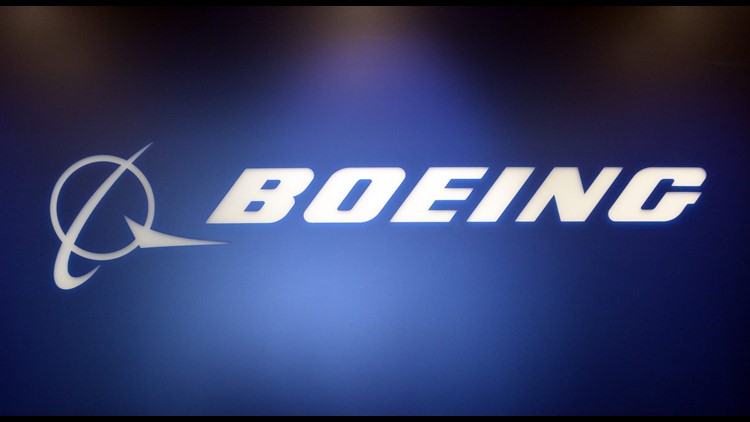Boeing is having a horrible month.
The company is at the center of an international firestorm after two fatal crashes in five months of its 737 Max planes.
The aircraft is supposed to be a workhorse for Boeing and a critical part of the company’s fleet. The global fleet of 737 Max aircraft have been grounded and the company is the subject of a US criminal investigation over the plane’s certification and marketing. And while Boeing says there’s a fix on the way for the software potentially linked to the crashes, it doesn’t look like this problem has an easy end.
The 737 Max debacle has been compounded by other rough news for Boeing. Delays in delivering on space projects for NASA are sparking criticism. And a separate incident shook the US military’s faith in the company’s ability to deliver aircraft without issues.
All the bad news has Boeing under a microscope. “Is there something systemically wrong with the culture of Boeing, or is this a run of bad luck?” Morningstar analyst Chris Higgins said. “Outside looking in, it’s hard not to question what’s going wrong.”
Boeing shares are down nearly 18% this month, and Boeing has shed more than $40 billion in value. It’s a rare dip for a company that has posted stellar profits, with sales of more than $100 billion last year.
CEO Dennis Muilenburg said in a public letter this week that safety is a top concern at Boeing and “ensuring safe and reliable travel on our airplanes is an enduring value and our absolute commitment to everyone.”
737 Max taken out of the skies
On March 10, one of Boeing’s 737 Max planes crashed shortly after takeoff in Ethiopia, killing everyone on board. It followed an October 2018 crash of a Lion Air-operated 737 Max in Indonesia that killed 189 people.
Countries and airlines around the globe started grounding the planes and refused to fly 737 Max aircraft until details about what happened on the Ethiopian Airlines flight surfaced.
But Boeing and US regulators did not immediately follow suit. The FAA chose to ground the planes on March 13, after the rest of the world had already done so, saying “new evidence” about the crash led to its decision.
New deliveries of the 737 Max, Boeing’s best-selling plane, were halted worldwide.
Early reports suggest both crashes were linked to a software feature that was not adequately communicated to pilots, and officials said Thursday that Boeing has a patch and will update pilot training.
But it’s still unclear when the 737 Max will be cleared to fly.
European discount airline Norwegian Air last week became the first airline to say publicly that it will demand Boeing pay for lost flight time. It is expected other airlines will follow suit.
An Indonesian airline, Garuda, on Friday became the first airline to cancel a batch of orders for the 737 Max. The carrier ordered 50 of the planes in 2014 for $4.9 billion. Most major airline customers of Boeing contacted by CNN on Friday either said they had no plans to change their orders, or that it was too soon to comment on their plans.
Higgins, the Morningstar analyst, said the Garuda cancellation is a drop in the bucket. Boeing is slated to deliver thousands of 737 Max aircraft. But if any of Boeing’s bigger customers, like Southwest or Ryanair, made a similar move — it could spell big trouble for Boeing’s financial outlook.
The controversy has also raised serious questions about Boeing’s reputation and its relationship with US regulators.
The FBI and the Justice Department’s criminal division are spearheading an investigation into the 737 Max’s certification and marketing, sources told CNN on Wednesday. Criminal investigators have sought information from Boeing on safety and certification procedures, including training manuals for pilots, along with how the company marketed the new aircraft, the sources said.
Boeing declined comment.
Separately, acting Defense Secretary Patrick Shanahan, a former Boeing executive, is the target of an ethics probe that questions his ties to the company. A spokesman for Shanahan said he has been committed to upholding ethics rules and supports the investigation.
The company’s stock is down more than 14% since the March 10 crash.
Muilenburg said in his March 18 letter that “work is progressing thoroughly” on understanding what went wrong with the Ethiopian Airlines accident.
“We’re taking actions to fully ensure the safety of the 737 MAX,” he said. “We also understand and regret the challenges for our customers and the flying public caused by the fleet’s grounding.”
NASA and Air Force woes
An already rough month for Boeing was compounded by news of shifting timelines for two of the company’s spaceflight projects, both of which involve multibillion-dollar contracts with NASA and for which delays are politically unpopular.
A bit of bad news from the Air Force added to Boeing’s woes. Will Roper, the Air Force’s top acquisition official, said the company has a “severe situation” on its hands after a tanker aircraft was delivered to the military with industrial tools and trash still on board.
The Air Force revealed it stopped accepting the new tankers from Boeing on February 20 after it discovered the situation.
Deliveries are now resuming, and Roper said last week he is confident Boeing will fix the problem. But he added that it will take “a good month, or a good two months” before his full faith is restored in the military’s prime corporate contractor.
All the negative headlines have Boeing under a microscope, said Higgins, the Morningstar analyst.



